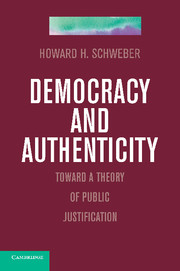1 - Introduction
Consensus Liberalism and the Challenge of Pluralism
Published online by Cambridge University Press: 05 November 2011
Summary
This is a book about liberalism. In many places in the West and elsewhere, liberalism as a creed is under siege. The increasing power and success of social movements, particularly in postcolonial and postsocialist states, has both given voice to long-suppressed communities and revealed long-overlooked lines of division and conflict. Increasingly multicultural societies with fluid borders have enhanced the level of communication across deep historical divides but also revealed the challenge that deep pluralism poses for democratic values of unity, self-government, and equal treatment. These historical developments have given new urgency to what might be called “the problem of pluralism,” the problem of combining basic liberal commitments with both democratic rule and an acceptance of deep differences at the level of values, worldviews, and identities.
In response to the problem of pluralism, there has been a veritable chorus of challenges to the ideals of specifically liberal democracy coming from both the Left and the Right. From the Left, the challenges have taken the form of calls for greater accommodation of cultural diversity within nation-states, explorations of postnational systems of self-government designed to expand the range of choices available to mobile populations, and a forthright embrace of identity-based politics with its clamor of conflicting claims asserted in mutually incomprehensible voices. From the Right, especially in the United States, over the past three decades there has been a revival of a specifically religious form of politics that was largely absent from the national discourse of the previous half century, as well as essentially defensive ethnic and cultural politics aimed at fending off perceived threats to traditional social and political order. Other critics from the Right have questioned the tradition of liberalism on the grounds that it is too weak a creed to stand and fight against its most determined enemies. Among democratic theorists across the ideological spectrum, there has been a renewed interest in nationalist ideologies at the same time that intellectuals struggle with the challenges of an increasing international order of governance.
- Type
- Chapter
- Information
- Democracy and AuthenticityToward a Theory of Public Justification, pp. 1 - 30Publisher: Cambridge University PressPrint publication year: 2011



